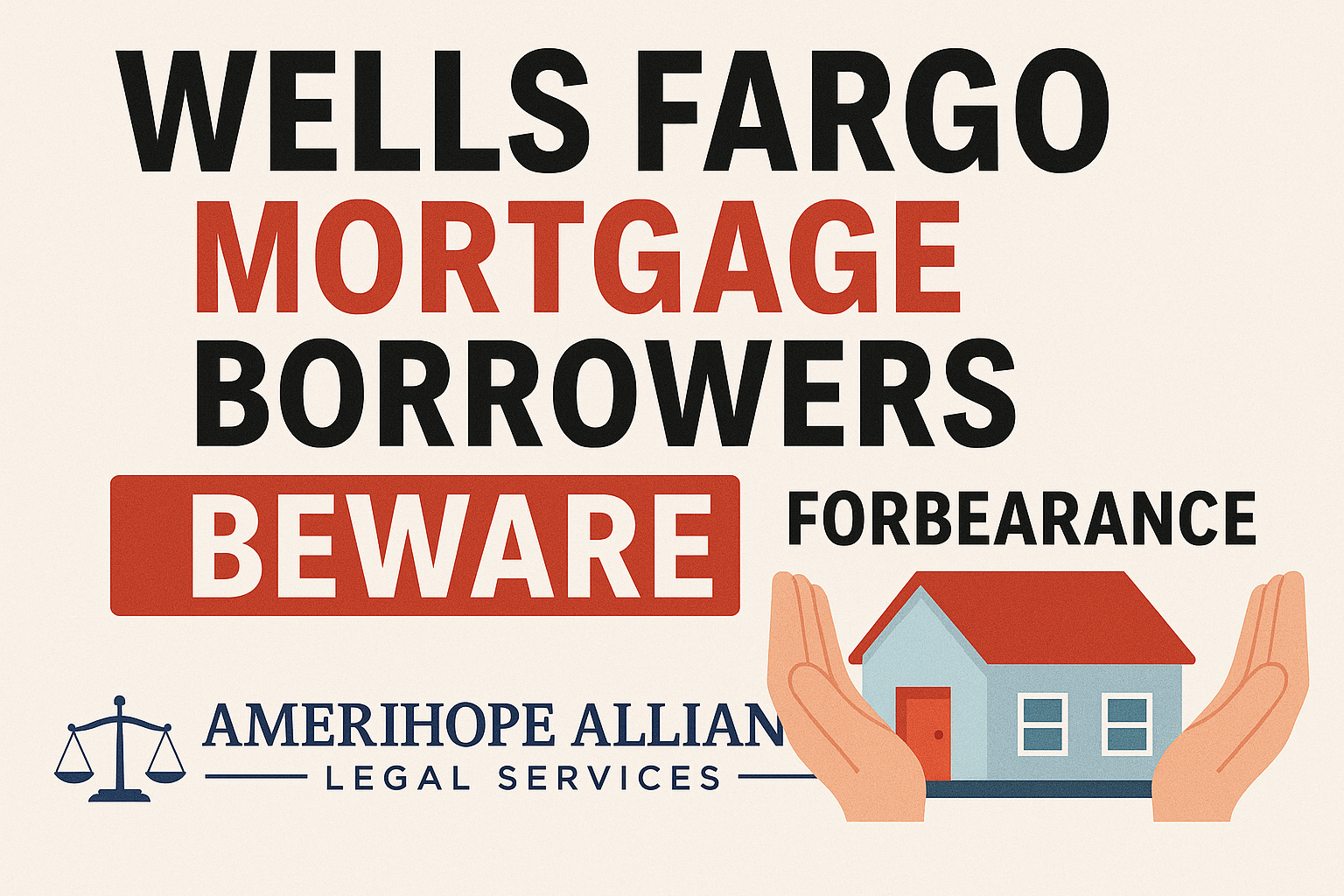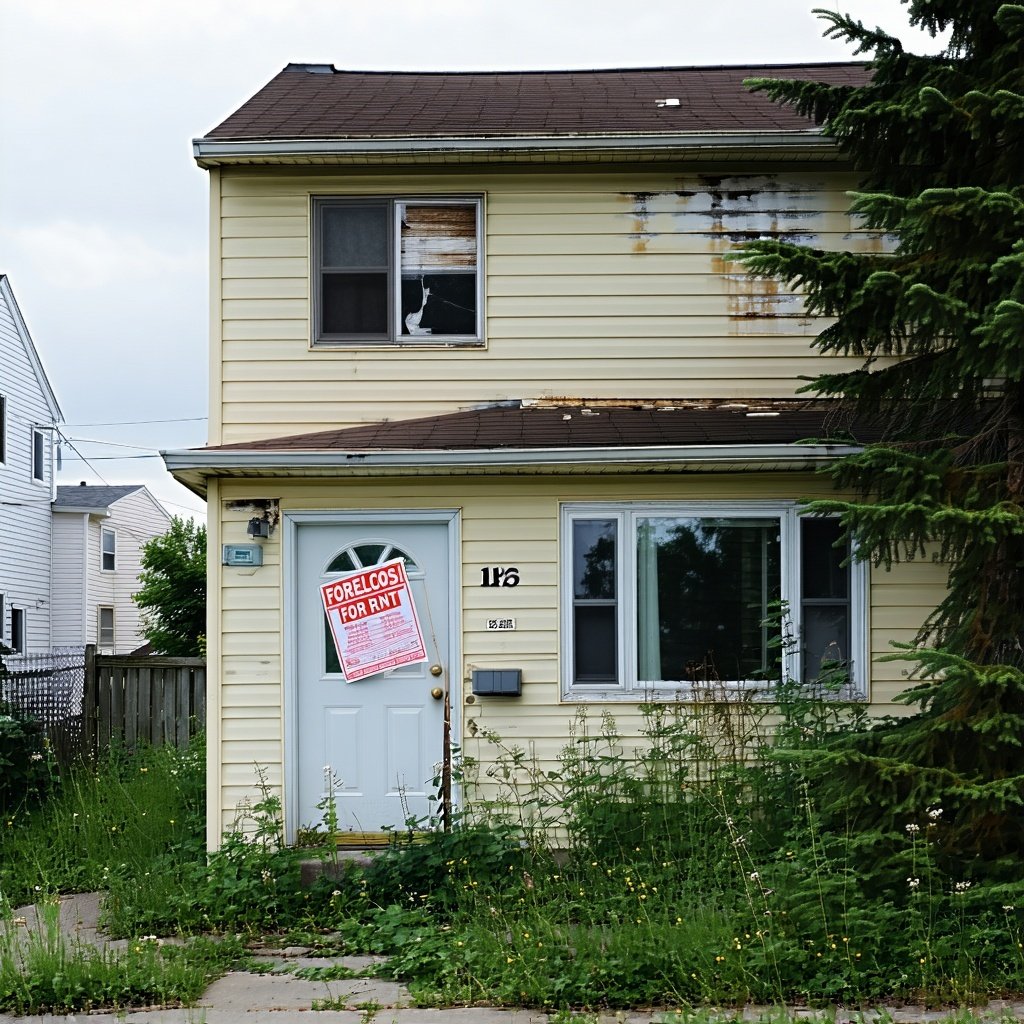If you’ve fallen behind on your mortgage—even by just a few payments—you’re in default. That means your lender can legally begin foreclosure proceedings. And eventually, you’ll receive a notice of default, a warning that you’re violating your mortgage terms and could lose your home.

[fa icon="clock-o"] Friday, August 8, 2025 [fa icon="user"] Jake Sterling [fa icon="folder-open'] foreclosure, judicial default judgment, summons and complaint
Read More »
Foreclosure Headlines — Here’s How to Protect Yourself From Scams
Turn on the news or scroll through social media, and you’ll probably see another headline about foreclosures.
“Foreclosures Are Rising”
“Foreclosures Are a Hot Investment”
While these stories often focus on trends or investors, they overlook the real people behind the numbers—homeowners fighting to stay in their homes. If you're struggling with mortgage payments, it’s easy to feel overwhelmed and vulnerable.
Unfortunately, foreclosure scams target people in exactly that position.
To help you avoid becoming a victim, here are four critical tips from the Federal Reserve Board on how to steer clear of foreclosure scams:
1. Don’t Pay an Arm and a Leg
There is a legal fee associated with hiring an attorney. Some law firm permit monthly payments which make hiring an attorney much more affordable.
Red flags to avoid:
Requests for payment only by cashier’s check or wire transfer2. Beware of Guarantees
Not even the best attorney or —can guarantee to stop foreclosure.
Law firms should will help you explore your options, like loan restructure, repayment plan, forbearance, but they won’t promise results they can’t control.
If someone says they can guarantee a specific result, walk away. Always get everything in writing.
3. Know What You’re Signing — and Who You’re Signing It With
Never sign anything you haven’t read or don’t fully understand.
And don’t:
Sign blank documents
Allow someone to “fill out the paperwork for you”Sign anything that could transfer ownership of your home without first consulting an attorney
Slow down, ask questions, and seek legal advice.
4. If It Sounds Too Good to Be True, It Probably Is
Trust your gut. If you're hearing is Big Promises that’s a sign to be cautious.
If you believe you've been targeted by a scam, report it—and don’t delay in seeking legitimate help.
Bottom Line: You Don’t Have to Face Foreclosure Alone
Protect yourself by working only with trusted legal professionals, getting everything in writing, and knowing your rights. There is real help out there—you just have to know where to look.
Consult with a qualified foreclosure attorney right away.
[fa icon="clock-o"] Friday, August 1, 2025 [fa icon="user"] Jake Sterling [fa icon="folder-open'] mortgage fraud, loan modification scams in Florida
Read More »
New Law Helps Veterans Avoid Foreclosure – Here’s How We Can Help
President Donald Trump has signed the VA Home Loan Program Reform Act (H.R. 1815) into law, giving veterans new tools to avoid losing their homes. For veteran homeowners who are struggling to keep up with mortgage payments, this law creates a partial claims program under the Department of Veterans Affairs (VA) Home Loan Program.
[fa icon="clock-o"] Thursday, July 31, 2025 [fa icon="user"] Jake Sterling [fa icon="folder-open'] foreclosure defense, foreclosure
Read More »
[fa icon="clock-o"] Wednesday, July 30, 2025 [fa icon="user"] Jordan Shealy [fa icon="folder-open'] foreclosure defense, lenders, foreclosure, mortgage, mortgage servicers, wells fargo, mortgage abuse, mortgage servicing, avoiding foreclosure, loan modification terms, mortgage assistance
Read More »
[fa icon="clock-o"] Tuesday, July 29, 2025 [fa icon="user"] Jordan Shealy [fa icon="folder-open'] loan modification lawyer, loan modification attorney, foreclosure defense, lenders, foreclosure defense attorney
Read More »
[fa icon="clock-o"] Thursday, July 10, 2025 [fa icon="user"] Jake Sterling [fa icon="folder-open'] stop foreclosure, loan modification lawyer, loan modification attorney, loan modification, foreclosure defense, loan modification help, foreclosure, mortgage, foreclosure glossary, lawyer, foreclosure crisis, foreclosure defense attorney, avoiding foreclosure, loan modification application
Read More »
An investment property is a property that is not your primary residence and is purchased or used in order to generate income, profit from appreciation, or for a tax benefit. The first thing to know about your investment property being foreclosed on is that your primary residence is safe from the bank. Even if the loans from your primary residence and investment property come from the same bank, your primary residence will not be foreclosed on as a result of an investment property foreclosure unless your primary residence is somehow tied to the investment property. One thing to note, is that the banks can expedite the foreclosure process on valuable, multi-unit investment properties. Just like in the foreclosure of your primary residence, you can contact your loan servicer to see if they have any loss mitigation strategies available for you.
[fa icon="clock-o"] Monday, June 9, 2025 [fa icon="user"] Jordan Shealy [fa icon="folder-open'] foreclosure grief, investment property
Read More »
Summer is meant to be a time for relaxation—but if you’re behind on mortgage payments or have received a foreclosure notice, it can feel like the walls are closing in. The good news is: foreclosure is not the end of the road. You have options—and the sooner you act, the more of them you’ll have.
[fa icon="clock-o"] Thursday, May 29, 2025 [fa icon="user"] Jake Sterling [fa icon="folder-open'] foreclosure
Read More »
As if falling behind on your mortgage payments and being at risk of losing your home to foreclosure wasn't bad enough, it also costs you extra money in the form of fees, which make it even harder to get your mortgage back on track.
Being charged fees for not having enough money to pay your mortgage can feel like adding insult to injury. You didn't have enough money to pay the regular mortgage payments, now they add fees to that! Wonderful.
Unpleasant as it is, there's no getting around incurring some fees when you default on your mortgage. Your mortgage contract states that you will be charged fees in the event that you do not pay your mortgage in full and on time.
The amount of your missed payments, which include principal, interest, taxes and insurance, will make up most of the money you owe after defaulting, but the fees are nothing to sneeze at. Let's look at what some of them are.
[fa icon="clock-o"] Thursday, May 22, 2025 [fa icon="user"] Maxwell Swinney [fa icon="folder-open'] foreclosure defense attorney, foreclosure fees
Read More »
A successful relationship between a client and a law firm requires both parties to do their job. The firm may have the most work to do, but there are some things that only the client can do. Even the greatest attorney in the world can't get you what you want if you're not playing ball.
If you hire our law firm, take the steps below to ensure that you have the best relationship with us and the highest chance of getting the outcome you want.
1. Add our phone numbers to your contacts and return our calls.
Have you ever received a call from an unknown number and not answered it because you assumed that if the caller was important to you, you'd already have their number saved in your phone? Probably a telemarketer, you figured. Then you get a voice mail and realize that the caller was someone very important to you, but you didn't add their number to your contacts yet. Crap!
Don't let that happen with a call from your lawyer. Add our number to your contacts and answer when we call you -- it's probably important. If you're a client of our firm, you will be getting calls from 877-882-5338 and 866-558-2408. You might also want to add your paralegal's direct fax number, so you have it handy while you're doing #3 below.
[fa icon="clock-o"] Tuesday, January 30, 2024 [fa icon="user"] Jake Sterling [fa icon="folder-open'] loan modification, foreclosure defense attorney
Read More »






